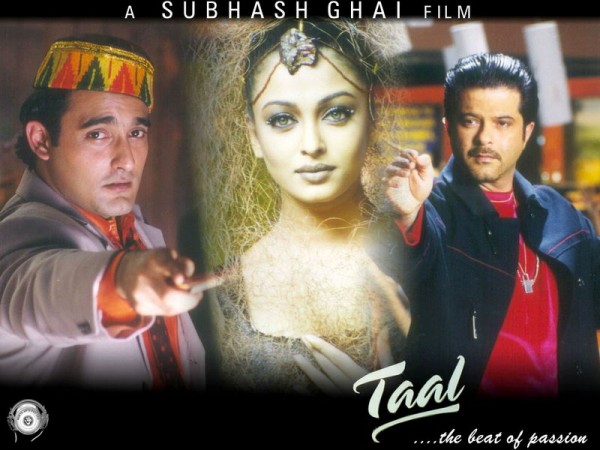
In the world of Indian cinema, landmarks frequently accentuate its illustrious journey, reflecting the growth and evolution of the sector. One of these historical turning points occurred in 1999 when the movie "Taal" made history by becoming the first Indian film to be insured. The industry's approach to risk management underwent a significant change as a result of this watershed event, which also brought attention to the rising financial stakes and global recognition of Bollywood. This article explores the history of this trailblazing choice and its effects on the Indian film industry.
Aishwarya Rai, Anil Kapoor, and Akshaye Khanna starred in Subhash Ghai's 1999 musical romantic drama "Taal," which also featured Akshaye Khanna and Anil Kapoor. The film was praised for its lavish production values, picturesque settings, and catchy soundtrack. A novel concept was conceived as the movie's production picked up steam: insuring a movie against potential losses. This idea would forever alter the course of Indian cinema.
Insuring "Taal" was a ground-breaking choice that provided new perspectives on the shifting dynamics of the Indian film industry. It demonstrated a growing understanding of the sizeable monetary commitments required for film production as well as the potential risks that could have an impact on a project's success. The makers of "Taal" were protecting their investment by getting insurance coverage, but they were also setting a precedent for other filmmakers to follow.
In the Indian film industry, the process of securing "Taal" was uncharted territory. To create a comprehensive policy that addressed a variety of issues, such as production delays, accidents, and unforeseen events that could interfere with the film's schedule or release, it was necessary for the producers of the movie to work in conjunction with the insurance industry and legal professionals.
The Indian film industry was affected by the commercial success of "Taal" and its insurance coverage. More filmmakers now understand the importance of safeguarding their investments against potential setbacks as a result of the reevaluation of risk management strategies that was sparked by this. As a result, the idea of insuring movies gained popularity and started to be used frequently by high-profile productions.
The choice to insure "Taal" attracted attention on a global scale as well, highlighting Bollywood's growing visibility abroad. The action strengthened the industry's reputation as a global entertainment powerhouse by demonstrating its dedication to professionalism and risk management.
The innovative decision to insure "Taal" paved the way for a new era of risk control in Indian cinema. A safety net for filmmakers and a boost to investor confidence, the practice of insuring movies has become customary over time. This tradition has persisted, and today the process of insuring movies is seen as essential to the creation of a movie.
The story of "Taal" and its distinction as the first Indian movie to be insured is proof of the Indian film industry's ongoing evolution. It demonstrates the industry's capacity for innovation, adaptability, and openness to adopting contemporary practices. This significant choice not only signaled a turning point in the history of the sector, but also opened the door for greater monetary stability, creative freedom, and international acclaim for Indian cinema.
The Haunting Parallel Journeys of Bollywood's Singing Titans
A Cinematic Jewel Born on India's Day of Freedom
Madhuri Dixit's Dual Delights with Vinod Khanna and Akshaye Khanna